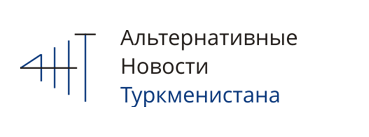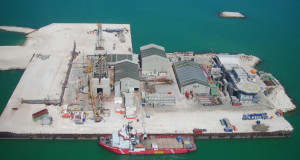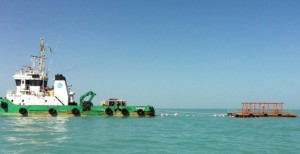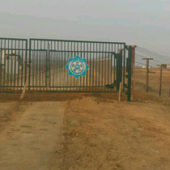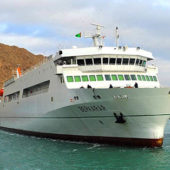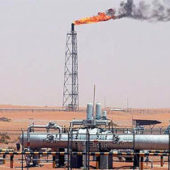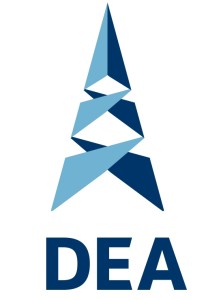 A confidential source at the State Agency for Management and Use of Hydrocarbon Resources under the President of Turkmenistan (“Agency”) told ATN that the German concern RWE Dea AG was going to terminate the production-sharing agreement (PSA) with Turkmenistan government pertaining to the License Block 23 located in the Turkmen part of the Caspian Sea. The key reason behind the decision was the overwhelming bureaucracy associated with corruption and incompetence of the officials in the Agency.
A confidential source at the State Agency for Management and Use of Hydrocarbon Resources under the President of Turkmenistan (“Agency”) told ATN that the German concern RWE Dea AG was going to terminate the production-sharing agreement (PSA) with Turkmenistan government pertaining to the License Block 23 located in the Turkmen part of the Caspian Sea. The key reason behind the decision was the overwhelming bureaucracy associated with corruption and incompetence of the officials in the Agency.
The press office of RWE headquarters in Hamburg indirectly confirmed the company’s withdrawal from the Turkmen market, telling ATN that “there are some indications of that”.
According to ATN’s sources in Turkmenistan, the German concern is simply fed up with the omnipresent bureaucracy. In particular, the company has already spent two years waiting for a drilling license, after completing all preparatory work based on the previous 4-year exploration license granted to it in 2009. The preparatory work included detailed environmental surveys and three-dimensional seismic survey of the fields. When the time came to issue the drilling license, the Agency started deliberately delaying the matter under various pretenses. Partially the delay was associated with environmental issues: exploration Block 23 is adjacent to the Khazar Nature Reserve.
The operations of RWE Dea are also stalled by the State Customs Service of Turkmenistan, which is drawing out customs clearance procedures and keeping the equipment in bonded storage, thus increasing the project costs. For example, the prior exploration revealed that due to the location of the block and the average sea depth in that area, drilling was only possible with a land rig, so the company would have to erect an island off the coast of Okarem, similar to the Kashagan project in Kazakhstan.
After obtaining the Agency’s approvals, the German company mobilized all the required equipment, materials, accommodation and service facilities, as well as maintenance and fabrication shops, machinery, parts and storage facilities. All of this was shipped to Turkmenistan about two years ago, but is still standing idle in the sea port of Turkmenbashi. One month of the port storage is costing RWE Dea approximately $30,000.
All attempts to reach a consensus with the Turkmen side have been fruitless. In April 2015, the Vice-President of RWE Dea came to Turkmenistan to discuss the possible withdrawal of the group and termination of the PSA. By coincidence, the meeting with the Agency’s Director Yagshigeldi Kakayev fell through, as the government official was accompanying president Berdymukhamedov on his visit to South Korea. The German guest was received by the Deputy Director of the Agency Suleyman Guladov.
“When Guladov started talking of the prospective fruitful cooperation, the RWE Dea top manager said that the decision to leave the project had already been made, and that his visit was intended solely to initiate the agreement termination and withdrawal of the company on mutually acceptable terms,” ATN’s source said.
This announcement took the Deputy Director by surprise. He promised to pass all concerns along to his superiors, as he himself had no authority to make decisions on the matter.
According to ATN’s source, the Agency “is currently in a state of hysteria”, as this is the first case in the history of independent Turkmenistan, when a company terminates a PSA involving a license block with confirmed reserves and completed exploration financed through foreign investment.
By now, most of the expat employees have been demobilized and sent to Germany. The only management remaining in the local RWE Dea branch are the people required to oversee the winding up of the office. Most of the local Dea staff, according to our estimations there are around 300 people, are forced to take vacation with subsequent termination of contract.
“This case is a stark example of mismanagement by our Agency”, ATN source says.
When the work begins, and they must provide real assistance and pre-empt problems, our officials are doing the opposite and creating new obstacles to prod investors to offer them financial incentives.”
The source adds that withdrawal of the German company will be an unpleasant surprise for Turkmenistan’s leadership.
“At the Agency, they have not considered the possibility of the Germans simply leaving, but they just simply can’t bribe everyone, and here, greasing one palm means that the rest will pounce on the opportunity to get their share,” he said.
To be fair, the company’s decision to leave Turkmenistan was also partly spurred by falling hydrocarbon prices. While topography of the sea bed and other factors make the cost of production in the Caspian Sea rather high, it is even higher in the Turkmen part of the sea, compared to the other four Caspian bordering countries. With the existing costs, corruption and unfriendly regulations, extraction of hydrocarbons is economically unfeasible.
According to the RWE press-service in Hamburg, in spite of the sizable financial losses in Turkmenistan, the company at the moment is not preparing a breach of contract claim. ATN experts say, however, that this is the current position only. The most serious consequence of the European investor’s exit from the market of Turkmenistan is that it will affect the country’s business reputation.
